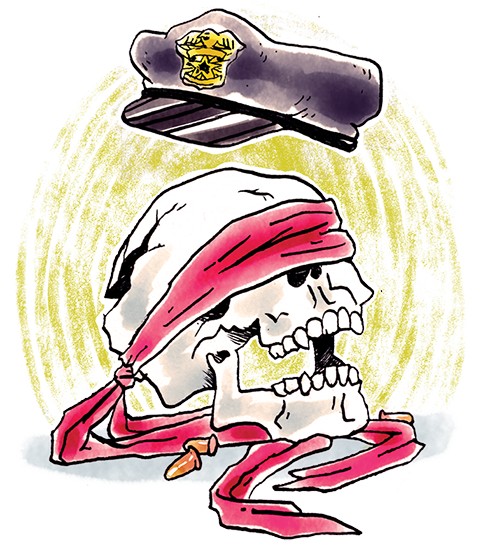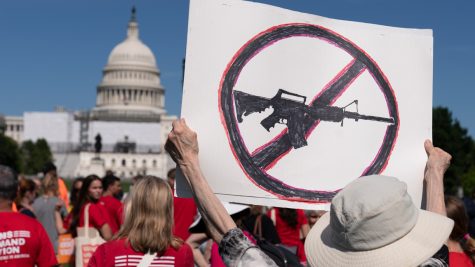State bans grand juries in deadly force cases

Illustration by Brittany England
Gov. Jerry Brown signed legislation Aug. 11 that makes California the first state in the country to ban grand juries when deciding whether police officers that use deadly force should be indicted on criminal charges.
The senate bill, SB 227, was written by Sen. Holly Mitchell, a Democrat from the 30th District which includes Los Angeles, and comes in the wake of grand jury decisions around the country to not file charges against police officers who killed Michael Brown in Ferguson, Missouri and officers who killed Eric Garner in Staten Island, New York.
Gov. Brown is hopeful that the bill will create “transparency” and help people “regain their trust” in the criminal justice system and police forces in the state. The bill will go into effect on Jan. 1, 2016.
Grand juries are selected from the same pool of people as normal juries and are presented evidence in secret to decide whether to bring charges against the accused, a practice originally started to ensure the safety of witnesses, according to the Supreme Court website. According to the University of Dayton, transcripts of the private hearings are generally sealed unless someone is indicted or a judge grants access to said documents.
“The use of the criminal grand jury process, and the refusal to indict as occurred in Ferguson and other communities of color, has fostered an atmosphere of suspicion that threatens to compromise our justice system,” Mitchell said in a statement on Aug. 11.
The new system will allow California district attorneys to decide whether or not to press criminal charges against officers who use deadly force in the line of duty, a system that Santa Clara and Los Angeles counties are already using. This will eliminate the secrecy as well as the panel that formerly made these decisions.
Not everybody supported Gov. Brown’s decision, specifically the California District Attorneys Association and the California Police Chiefs Association. Both groups have come out against the bill passed by the governor saying that the system was useful.
“To insinuate in any way that police officers get special treatment in these cases is just not true,” California District Attorneys Association Chief Executive Officer Mark Zahner said.
It was a busy day for Gov. Brown who also signed SB 411 written by Senator Ricardo Lara, a Democrat from Bell Gardens, which has been dubbed the ‘Right to Record Act’.
“Today, California makes it unequivocal – you have the right to record,” Lara said in a statement on Aug. 11.
The bill makes it legal for citizens to record and photograph police officers and other law enforcement officials while in the line of duty. Recently there have been several viral videos posted on websites that show police officers attempting to confiscate recording devices as well as detaining individuals who attempted to record them. Both of the new bills authorized by Gov. Brown will go into effect on Jan. 1, 2016.











